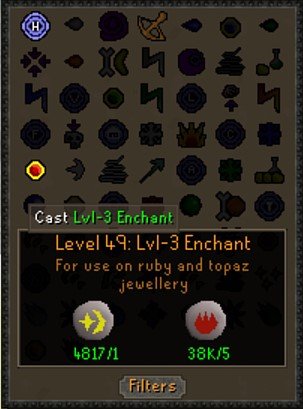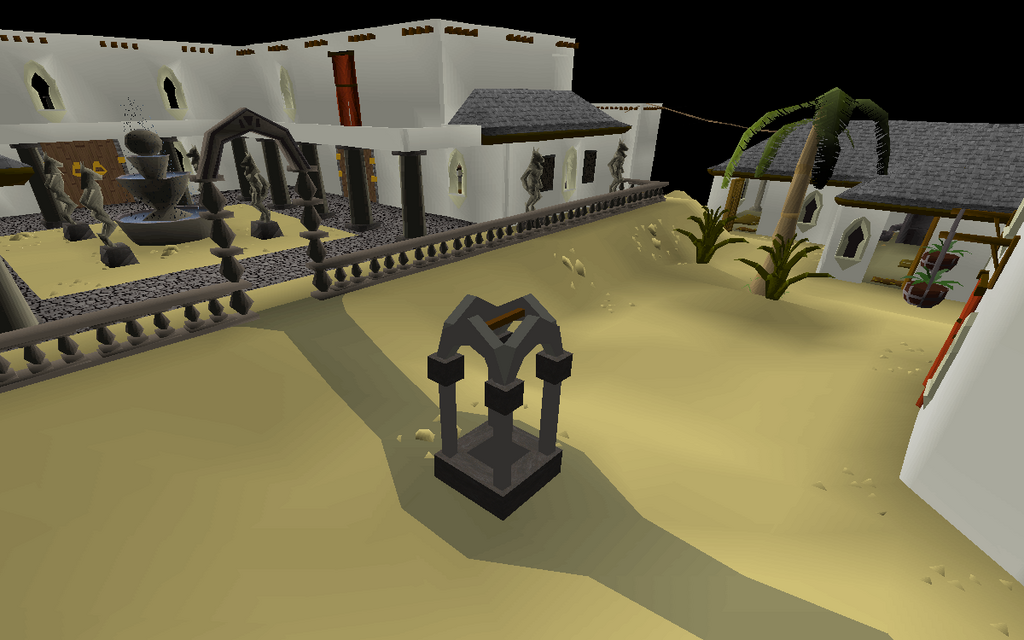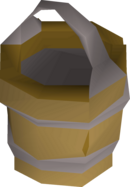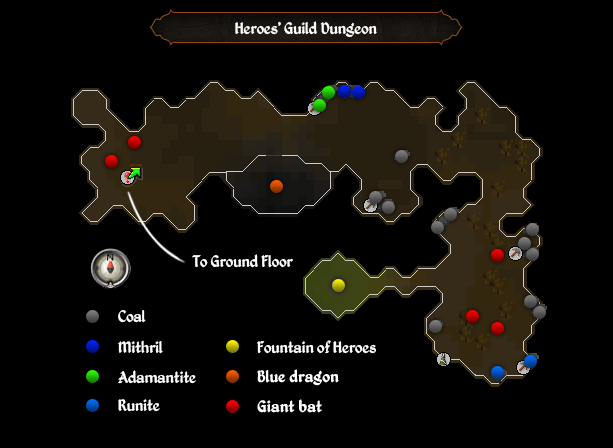The economy of OSRS is a living, breathing entity, with prices fluctuating based on player demand, game updates, and market manipulations. Learning to navigate these economic waters is as crucial as mastering any boss mechanic. The methods I’ll share aren’t just dry numbers on a spreadsheet; they’re pathways to freedom—the freedom to afford that next gear upgrade, to stock up on supplies for daring boss encounters, or to simply flex with cosmetic fashionscape that turns heads in Varrock Square.
Beginner’s Gold Farming Methods
Every legendary adventurer began with simple quests, and your wealth-building journey should start with accessible methods that require minimal stats or investment. These activities are perfect for new members or those rebuilding their bank after a costly purchase.
Enchanting

There’s something magical about transforming common jewelry into powerful enchanted items. The quiet hum of enchantment spells in a secluded corner of the Wizards’ Tower can be surprisingly profitable. The method involves purchasing unenchanted sapphire rings or emerald necklaces from the Grand Exchange, casting the appropriate enchantment spell on them, and selling the resulting Ring of Recoil or Binding Necklace back on the GE for a profit .
Level 1 Sapphire Ring Enchants (Magic Level 7 required) can yield between 150,000 to 300,000 GP per hour . The process is straightforward:
- Buy sapphire rings in bulk from the Grand Exchange.
- Use Cosmic Runes and Water Runes (or a Staff of Water) to cast the Level 1 Enchant spell.
- Sell the resulting Rings of Recoil.
As you progress, Level 2 Emerald Necklace Enchants (Magic Level 27 required) become available, potentially netting 200,000 to 400,000 GP per hour . The key to success with enchanting is always checking the profit margins before investing in materials. The difference between the buy price of the base item and the sale price of the enchanted item must be greater than the cost of the runes used.
Al Kharid’s Gold Trade

The scorching sun of Al Kharid beats down on countless entrepreneurs running between the bank and Ellis the Tanner. This method capitalizes on the price difference between dragonhides and their tanned counterparts . It requires a modest initial investment (around 750k GP recommended) and membership.
The strategy is simple in concept but requires efficiency in execution:
- Check Grand Exchange margins between dragonhides (green, blue, red, or black) and their corresponding dragon leathers.
- Buy the most profitable dragonhide in large quantities.
- Travel to Al Kharid and pay Ellis to tan your hides.
- Bank the tanned leather and repeat.
- Sell all the tanned leather on the Grand Exchange.
With current margins, this method can generate approximately 350,000 GP per hour, potentially reaching up to 500,000 GP per hour depending on market conditions and your efficiency . Using Stamina Potions and having a decent Agility level for better run energy recovery significantly boosts your hourly profits by reducing downtime.
Crafting Ultracompost

For those who prefer the quiet life of a gatherer or crafter, creating Ultracompost—the most potent compost in Old School RuneScape—offers solid profits. This method has two variations: one more time-intensive but with higher per-unit profit, and another faster approach that scales well with capital.
The process involves combining Supercompost with Volcanic Ash . The profitable approaches are:
- Self-Sufficient Method: Requires access to Fossil Island and Level 22 Mining. Mine Volcanic Ash yourself, then buy Supercompost and combine them. This method yields higher profit per Ultracompost (around 264 GP each) as you’re gathering the ash yourself .
- Bulk Crafting Method: Buy both Volcanic Ash and Supercompost from the Grand Exchange. While the profit per unit is lower (around 132 GP each), you can produce thousands per hour, leading to potentially higher overall profits .
With efficient banking and travel, you can expect to make between 250,000 to 500,000 GP per hour with this method, depending on which approach you take and current GE prices .
- Grand Exchange Flipping: While not a traditional “farming” method, flipping items on the GE can generate 100k-500k profit per hour with minimal active playtime once your orders are set. It requires significant starting capital and market knowledge .
- Converting Elemental Staves: With Level 42 Construction to build a house with teleports, you can profit from price differences between basic elemental staves by buying the cheapest and converting them to more expensive types .
Mid-Tier Gold Farming Methods

Once your account has developed solid foundational stats, a world of more engaging and profitable methods opens up. These Old School RuneScape activities often combine skill training with wealth accumulation.
High Alchemy
The satisfying chime of a successful High Alchemy spell is the sound of money being made. This spell, which converts items directly to their high-alchemy value in coins, remains a cornerstone of mid-game gold farming. While often used for Magic experience, when paired with the right items, it becomes a potent money-making method .
One specific F2P application demonstrates the potential: High Alching Steel Platebodies that spawn in the Lava Maze in the Wilderness can yield up to 250,000 GP per hour. This requires 55 Magic, a Fire Staff, Nature Runes, and carries the inherent risk of being in the Wilderness. In members’ worlds, players often alch items like battlestaves or certain dragon items** for similar or better profits .
Flipping
Buying items from NPC shops and reselling them on the Grand Exchange can be surprisingly profitable. For OSRS free-to-play players, the Remington Archery Shop method involves buying bulk archery supplies from the GE, then selling specific quantities to Brian’s shop in the Remington archery building via world hopping. With a ~650k GP investment, this can generate over 400,000 GP per hour .
Another F2P-friendly method is buying Feather Packs from the Port Sarim fishing shop. With a 150k GP investment, you can make about 258,000 GP per hour opening packs and selling the feathers on the GE . These methods require careful attention to avoid diminishing returns from shop price inflation.
 Slayer and Combat
Slayer and Combat
As your Slayer level increases, so do the profitability of your assignments. While not the absolute top-tier money maker, Gargoyles (requiring 75 Slayer) remain a reliable source of income, generating 370,000+ GP per hour in consistent drops of alchables and resources. The beauty of Slayer is that you’re training your combat stats while farming gold, making it one of the most efficient uses of your time overall.
OSRS High-Level Gold Farming Methods

For end-game players with high skill levels and quest completions, OSRS offers methods that can generate millions per hour. These activities often require significant focus, skill, and sometimes a tolerance for risk.
Elite Skilling Methods
| Method | Requirements | GP/Hour | Notes |
|---|---|---|---|
| Pickpocketing Vyres | 82 Thieving, Sins of the Father, Rogue Outfit | ~4.8M | Chance for Blood Shard (~27M) |
| Herb Runs | 32+ Farming, Magic Secateurs, Ultracompost | ~3.4M | Passive income; requires regular 5-minute runs |
| Wilderness Agility Course | 52+ Agility | ~2.7M | High risk from PKers |
| Pickpocketing Elves | 85 Thieving | ~2.6M | Chance for Crystal Teleport Seed (1.8M+) |
| Wrath Rune Crafting | 95 Runecrafting, Dragon Slayer II | ~2.3M | — |
| Blood Rune Crafting | 77 Runecrafting, 74+ Agility, Sins of the Father | ~2.1M | Highly consistent |
| Mining Zalcano | Song of the Elves | ~2.0M | Skilling boss with unique drops |
| Tan Leather Spell | 78 Magic, Fremennik Hard Diary | ~1.8M | Great Magic XP |
| Mastering Mixology | 60 Herblore, Children of the Sun quest | ~1.7M | Herblore minigame |
| Rogues’ Chest Thieving | 84 Thieving, 43 Prayer | Up to 2M+ | Wilderness risk, great for clue scrolls |
The Power of Passive Income: Herb Runs
Perhaps the most recommended gold-making method across all levels is the humble herb run. With just 32 Farming, magic secateurs, and ultracompost, you can establish a steady income stream that requires only a few minutes of attention every 80 minutes .
Efficient herb runners can generate up to 3.4 million GP per hour of active time by planting the most profitable seeds (like Toadflax, Snapdragon, or Torstol) across multiple patches . This method is so powerful because it’s effectively passive income—you do a 5-minute run, then go back to other activities while your plants grow. Over time, this consistent drip of gold adds up to staggering totals.
High-Risk, High-Reward Activities
For those who thrive on adrenaline, certain methods offer exceptional rewards balanced by significant risk.
- Rogues’ Chest Thieving: Located in the Wilderness, this requires 84 Thieving and offers up to 2M+ GP per hour alongside excellent Thieving XP. The constant threat of player killers (PKers) means you must stay alert and use items like a locator orb to manage your health .
- Wilderness Agility Course: With 52 Agility, this course offers both the fastest mid-level Agility XP and substantial GP from the reward chests—up to 2.7M GP per hour. Like all Wilderness activities, you risk losing your carried items if killed .
Free-to-Play Gold Farming Methods

For those limited to free-to-play worlds, the grind is real, but viable paths to wealth exist. These methods require minimal to no stats, making them perfect for new players or pure F2P accounts.
- Cowhide Collection: The classic new player method. Collecting cowhides from the Lumbridge cow fields can generate up to 100,000 GP per hour with zero requirements. On populated worlds, cows die frequently, allowing you to simply gather drops .
- Monk Robes World Hopping: Collecting monk robes from the Monastery west of Edgeville involves grabbing a full inventory, hopping worlds, and repeating. This can yield about 180,000 GP per hour .
- Mining Runite Ore: The pinnacle of F2P money making, requiring 85 Mining. Mining runite ore in the Wilderness can generate around 440,000 GP per hour, but carries high risk from PKers .
The Grand Exchange
Beyond traditional farming, understanding the Grand Exchange’s intricacies can itself become a primary source of gold. Flipping involves buying items at low prices and selling them at higher prices . This isn’t farming in the traditional sense but can generate substantial profits with minimal time investment once you master it.
Successful flipping requires:
- Substantial Starting Capital: The more gold you have to invest, the more you can make.
- Market Research: Understanding item price margins, daily fluctuations, and update impacts is crucial.
- Patience: Some flips take days to complete but offer excellent returns on time invested.
With practice, flippers can make 100,000 to 500,000 GP per hour of active engagement, with their investments continuing to work for them while they’re offline or engaged in other activities .
Final Thoughts
True wealth in Gielinor isn’t built in a day. It comes from consistent application of efficient methods, smart resource management, and a long-term perspective. The players with the most impressive banks didn’t get there through a single lucky drop; they built their fortunes through daily habits and smart decision-making.
Remember to balance profit with enjoyment. The fastest GP/hour method means little if it burns you out on the game. Find activities you genuinely enjoy that also generate decent income, whether that’s the social atmosphere of the Pest Control minigame, the thrill of bossing with friends, or the solitary satisfaction of efficient skilling.
As you progress, your gold-making strategies will naturally evolve. The methods that served you well at combat level 50 will become obsolete when you’re level 100, and the millions that seemed unimaginable early on will become a single gear upgrade later. Embrace this progression, continue learning about new methods and market opportunities, and may your coffers overflow with gold as richly as your adventures are filled with excitement.